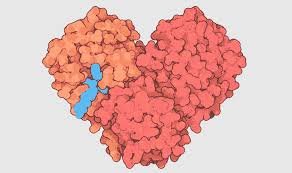

‘Corona’ refers to a Latin or Greek term referring to a crown. Coronavirus is a group of viruses that cause illness in mammals, humans and birds. This virus leads to serious respiratory tract infections like breathlessness in common . Mild respiratory problems include common cold while more severe conditions can be SARS, MERS, and COVID-19. In chickens, the virus causes the upper respiratory tract. And in cows and pigs this virus causes diarrhea.
Coronavirus first occurred in Wuhan, Hubei province, China in December 2019. The World Health Organization (WHO) recognized the outbreak as a pandemic on March 11, 2020. The International Emergency of International Concern was declared in January. Around 1.38 million COVID-19 cases have been reported to date resulting in 78,200 deaths. Also, 2,92,000 people have recovered.
People who experience virus infection may experience the symptoms between two to 14 days after exposure. In some cases, no symptoms might occur at all. Old age people or individuals with a weak immune system and persons suffering from chronic medical conditions namely heart or lung-related diseases or diabetes are at high risk of infection. The signs of COVID-19 include:
The risk factors for severe COVID-19 infection are:
Humans firstly got affected by coronavirus due to contact with animals. Besides, the virus transmits from one person to another just by touching. COVID-19 virus can be spread through contact with certain body fluids such as cough droplets. It can also be caused in case of touching an infected person and then touching a hand to mouth, nose or eyes.
Certain myths are prevailing for the pandemic which includes:
The coronavirus not only affects our respiratory system but also this pandemic has a drastic effect on the heart called SARS-CoV-2. The infection can lead to improper functioning of the heart.
Individuals with cardiovascular disease are at high risk of severe complications in the respiratory tract. Cardiologists say abnormal heart rhythms or arrhythmias might occur as a consequence of the effect of medications that are used to treat the COVID-19 virus. Heart failure occurs due to a systemic inflammatory response to the infection, lung damage leading to heart inflammation known as myocarditis. In the case of old age people who are suffering from existing coronary artery disease or hypertension, heart failure may occur due to the body’s decreased cardiac reserve capacity. However, in young people, the coronavirus may cause primary myocarditis.
Patients with a cardiac arrest can avoid the risk of COVID-19 infection by practicing social distancing. It is observed that providing influenza vaccination to all cardiac patients can decrease the risk of COVID-19 death by 18%. Therefore, vaccination in cardiac patients is a must.
Prevention is better than cure. So, while the world waits for the vaccines and medications to fight COVID-19, it is important to slow down the spread of the coronavirus. Staying at home and self-isolated is the best way to overcome the spread of this contagious and deadly disease. As per the recommendations of local health departments and personal physicians, followings are the measures to be adopted to avoid getting trapped by the deadly infection of COVID-19:
Certain other points that should be kept in mind to maintain hygiene are: